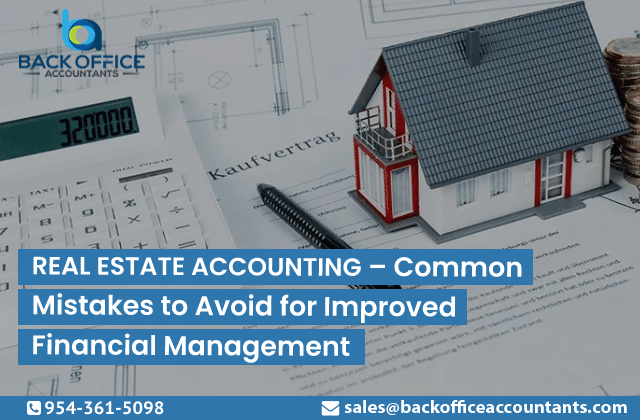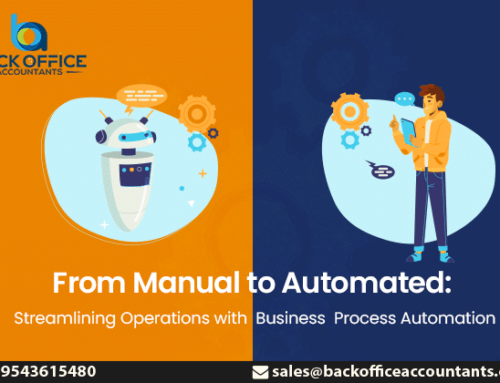An efficient real estate accounting helps understand the current financial health of the business and provides you insights for better growth and profitability. While the goal is always same for every real estate business, only a few fully leverage accounting for better growth.
Challenges of Real Estate Accounting:
The dynamics, mode of operations and the size of transactions involved make real estate accounting challengingly complex. Unlike other businesses, a simple accounting mistake can cost a lot in the real estate business and worse, the mistake can stay hidden for years. So the goal is always to build a robust accounting system that minimizes mistakes and works like a well-oiled machine that enables smooth and improved financial performance.
The fastest way for a small and medium real estate business to build a high-performance accounting system can be divided into two steps:
Step 1: Avoid the common mistakes committed by real estate businesses.
Step 2: Adopting tried and tested best practices of real estate accounting.
As a remote accounting firm specializing in real estate accounting, Back Office Accountants has worked with more than three dozen real estate businesses. We have identified and rectified all their mistakes and charted an accounting system that helped them achieve their growth targets. So we can help you with both steps. Let us focus on step 1 in this blog today:
5 Common Real Estate Accounting Mistakes to Avoid for Improved Financial Management:
Non-segregation of personal and company accounts: Budding real estate business blends their personal and business expense accounts which eventually creates extra work & confusion during tax time. Clumping both accounts not only results is a sure shot way to organization-wide hustle, lack of visibility and giving up potential tax saving opportunities.
Having separate accounts simplifies tracking financial transactions and integration with the accounting software. Most importantly it gives you greater visibility while reducing extra work for your accounting resources. So always separate your personal and business accounts and while you do so itemize each expense to make it easy during tax time.
Fund disbursal before the transaction closes: While it may look like a regular practice we were often surprised how much additional work it can bring when there are ad-hoc adjustments to the amount. Given the transaction doesn’t come under commission until the paperwork is done and keys are exchanged, the practice is also non-complaint as per rules. And as we said, any last-minute adjustments can mean an additional burden and waste of valuable time – a big problem when you are short-staffed.
Inefficient data backup practices: Small and medium real estate businesses grossly underestimate the importance of having a robust and reliable data backup until they suffer or are scarred by data loss. It is estimated that more than 44% of the data loss in accounting is due to inefficient data backup practices.
The practice of inefficient data backup was the first thing to strike my mind when we were talking about how simple mistakes can have massive repercussions. If you are a budding real estate business you can save a lot of time, money and last-minute hassles by having a safety net and fortifying your data with the right backup solution. You don’t want an unexpected crash to gobble up all your accounting hard work, do you? Then have an automatic data backup solution.
System & data integration problems with accounting software: Businesses have finally realized the importance of having accounting software and niches tools at their disposal for betting accounting performance. However, the execution- migration and data integration are not as simple as the user experience of accounting software. This makes data integration and migration to other platforms the most common and underrated problem encountered by all types of businesses.
Seamless data interaction and processing are key for leveraging any cutting-edge accounting tool and data integration problems can put a brake on this process. Even worse, when the information is in siloes and integration is not optimal, the accounting can lead to mistakes and inaccuracies.
Limited access to the right accounting expertise: Main reason for the data integration and migration problems we have discussed above is the lack of the right expertise that can guide the process. But the problem is only a symptom. Lack of right accounting expertise is the main reason for any of the above mistakes – segregation, expense classification, data back or integration.
While businesses do hire sufficient resources, more often than not they are swamped by multiple responsibilities which avoid them from focussing on strategic tasks. Lack of accounting resources may also stem from limited access to accounting talent or even lack of capital. But with the advent of remote accounting firms that specialize in real-estate accounting services, this should not be a problem. If you are a real estate business that is looking to smoothen your accounting operation and improve your accoutring and financial performance, Back Office Accountants is always here to help: https://www.backofficeaccountants.com/







